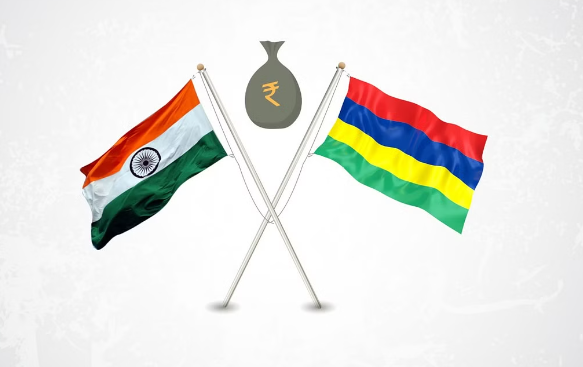Mauritius to amend India-Mauritius DTAA
Mauritius Government has decided to amend Double Taxation Avoidance Agreement (DTAA) with India in order to go with OECD’s proposal on Base Erosion and Profit Shifting.
What is Double Taxation Avoidance Agreement (DTAA)?
The Double Tax Avoidance Agreement (DTAA) is a treaty signed between two countries so that non-residents will be able to avoid paying double taxes. India has signed DTAA with 85 nations to safeguard non-resident Indians from double taxation. This agreement ensures that countries involved have agreed upon tax rates on income arising from their country.
History of India-Mauritius DTAA
The Government of India and the Government of Mauritius signed the treaty in 1983 regarding the avoidance of double taxation. The bilateral tax pact had catalysed over $160 billion foreign investments into India.
Primary Objective
The primary aim of this amendment is to expect opportunities for tax avoidance or minimisation through exploitative tactics. This modification would elevate the India-Mauritius tax treaty to the status of a covered tax agreement under BEPS MLI (Multilateral Instrument). This will introduce anti-abuse and limitation of benefit rules, principal-purpose test and inclusion of arbitration in the mutual agreement procedure.
Multinational corporations with entity structures in India and Mauritius could see enforcement of more challenging treaty rules on account of implementation of BEPS MLI.
Base Erosion and Profit Shifting
The Organization for Economic Cooperation and Development evolved new guidelines called Base Erosion and Profit Shifting or BEPS. BEPS aims to stop companies avoiding tax by creating complex structures. It does this by standardizing anti-abuse rules across all tax agreements globally.
Impacts of Changes for Investors
The updated India-Mauritius tax agreement applying BEPS rules will make routing investments into India more difficult. Entities have to now demonstrate real substance beyond just tax savings. But genuine investors can still benefit from Mauritius tax incentives.
India’s Proactive Role
India played a major role in developing BEPS consensus at global discussions. It recognized the need to balance investment and also prevent misuse of preferential tax rules by companies using complicated structures to avoid tax.
Deterring Tax Avoidance Structures
Newly introduced anti-abuse rules target arrangements mainly aimed at getting tax benefits like ‘limitation of benefits’ clause and ‘principal purpose test’. These make entities prove the real commercial purpose beyond just tax planning.
Other Tools To Curb Tax Dodging
India also uses strong domestic anti-avoidance laws since 2017. It also mandates compulsory disclosure of intricate investor arrangements for timely risk evaluation by authorities.
However, situation changed in 2016 when it was decided that in case shares purchased after April 1, 2017, capital gains arising from an investment in an Indian company will be taxed in India. With the double tax avoidance treaty with Singapore being linked to the agreement with Mauritius, investments from Singapore have also been brought in to the Indian tax net.
Since the signing of the amendment in 2016, FDI inflows from Mauritius have dropped from $15.72 bn in 2016-17 to $6.13 bn in 2022-23, with Mauritius becoming India’s third largest source of FDI.
Category: Economy & Banking Current Affairs








